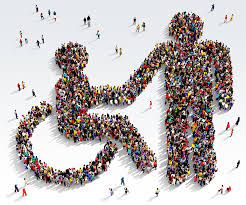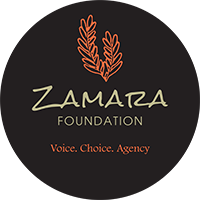
Prioritize needs of persons with disabilities in planning
The International Day of Persons with Disabilities was marked last Friday. The December 3 commemoration strives to raise awareness about disability issues and mobilise support for people with disabilities’ dignity, rights and well-being.
The theme for this year’s International Day of Persons with Disabilities was “Fighting for Rights of the people with disability in the post-Covid era,” which emphasizes the importance of securing the rights of people with disabilities so that they can participate fully, equally and effectively in society and face no barriers in all aspects of life.
It also aims to raise awareness of the benefits that can be gained through integrating people with disabilities into all aspects of political, social, economic and cultural life. As governments and the international community fight the pandemic and define the way forward, disability inclusion must be at the forefront of health system planning, development and decision-making.
Persons with disabilities face stigma and prejudice as a result of other people’s views towards them. The attitudes are frequently based on misunderstanding and disinformation, resulting in myths and stereotypes about people with disabilities. As a result, negative stereotypes are perpetuated which obstruct the full involvement of people with disabilities in socioeconomic activities.
According to Disability News Africa, an estimated 60 to 80 million people in Africa have disabilities. They are estimated at 10 per cent of the general population but possibly as high as 20 per cent in the poorer regions. The Kenya National Housing and Population Census 2019 shows that the overall disability rate in Kenya is 2.2 per cent which translates to 918,270 people. In addition, Kenya has a total of 9,720 Persons with Albinism.
In Kenya, persons with disabilities endure socio-economic difficulties which force them to rely on their families for social, financial, material and psychological support. As a result, people with disabilities are more likely to have less access to resources than other family members.
Covid-19 has clearly exacerbated marginalization, discrimination, vulnerability and exploitation for many persons with disabilities. The increased risk of poor outcomes has been amplified by reduced access to routine health care and rehabilitation services, more pronounced social isolation, poorly tailored public health messaging, inadequately constructed mental health services and a lax approach to mental health care.
Article 27/2 of the UN Convention on the Rights of Persons with Disabilities that failure to protect and uphold the rights of people with disabilities is a violation.
The convention is a crucial catalyst in the global disability rights movement, allowing people with disabilities to change from being objects of charity, medical treatment and social protection to be full and equal members of society with human rights. The Constitution confers upon citizens, including PWDs, the right to the enjoyment of all human rights and fundamental freedoms. The basis of the protection is spelt out in the national values and principles of governance.
I urge local and international public health officials, political representatives, advocates, human rights defenders and the community to learn from the experiences of people with disabilities during this pandemic and advocate for more meaningful investments in the socioeconomic building blocks that will reduce barriers that such people face.
Lucy Kombe is a women rights advocate and programme Assistant at Zamara Foundation.
